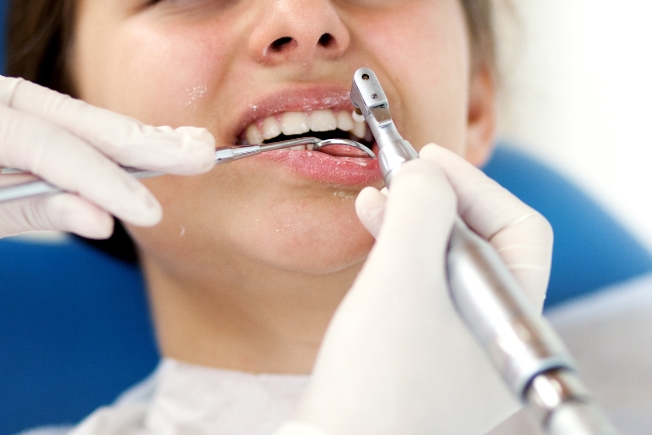
Maintaining healthy teeth and gums requires routine dental cleanings. Plaque and tartar can still build up even with regular brushing and flossing, which can result in cavities, gum disease, and foul breath. But how can you tell when your next dental cleaning is due?
This blog will discuss the main warning symptoms and the importance of routine cleanings for your general well-being.
Why Dental Cleanings Are Important?
Dental cleanings are more than just about having a sparkling smile. They remove hardened plaque (tartar), which cannot be eliminated with regular brushing. Professional cleanings also reduce the risk of gum disease and cavities while detecting potential problems early.
Additionally, oral health is closely linked to general health; untreated gum disease, for instance, can increase the risk of heart disease, diabetes, and other conditions. Skipping cleanings can allow plaque to build up, leading to more expensive and invasive treatments down the line.
Key Signs You Need a Dental Cleaning
If you’re unsure whether it’s time for your next dental cleaning, here are clear indicators to look out for:
1. Persistent Bad Breath
- Halitosis, or chronic bad breath, often results from plaque and bacteria buildup in hard-to-reach areas.
- If brushing and flossing don’t resolve it, a professional cleaning can help eliminate the root cause.
2. Plaque and Tartar Buildup
- Plaque is a sticky film that forms on teeth after eating, which hardens into tartar if not removed.
- Tartar can only be eliminated by a dental professional using specialized tools.
3. Bleeding or Swollen Gums
- Healthy gums don’t bleed during brushing or flossing. If yours do, it may indicate gum inflammation or gingivitis.
- Regular cleanings can prevent gingivitis from progressing into more serious gum disease.
4. Tooth Discoloration
- Yellowing or staining on your teeth can occur due to plaque accumulation or dietary habits.
- Professional cleanings help brighten your smile by removing surface stains.
5. Sensitivity to Hot or Cold Foods
- Heightened sensitivity might indicate enamel erosion or gum recession caused by tartar buildup.
- A cleaning can address this by targeting plaque around the sensitive areas.
6. Can’t Remember Your Last Cleaning
- If it’s been over 6 months since your last visit, it’s time to schedule a cleaning—even if you’re not experiencing symptoms.
Benefits of Timely Dental Cleanings
1. Prevents Gum Disease and Cavities
- Regular cleanings eliminate plaque and tartar, reducing the risk of oral health problems.
2. Saves Money in the Long Run
- Routine maintenance can prevent costly procedures like fillings, root canals, or gum treatments.
3. Maintains a Brighter Smile
- Professional cleaning removes surface stains caused by coffee, tea, or tobacco, restoring your teeth’s natural color.
4. Promotes Overall Health
- Oral health impacts systemic health. Keeping your mouth clean can lower the risk of heart disease, diabetes, and respiratory infections.
What Happens During a Dental Cleaning?
Dental cleanings are straightforward yet thorough procedures that ensure a healthier smile. Here’s what to expect:
- Oral Examination
- Our dentist or hygienist will check your mouth for signs of cavities, gum disease, or other issues.
- Our dentist or hygienist will check your mouth for signs of cavities, gum disease, or other issues.
- Scaling
- Plaque and tartar are removed using specialized tools. This process targets areas between teeth and along the gumline.
- Plaque and tartar are removed using specialized tools. This process targets areas between teeth and along the gumline.
- Polishing
- A gritty toothpaste is used to polish your teeth, eliminating minor stains and leaving them smooth.
- A gritty toothpaste is used to polish your teeth, eliminating minor stains and leaving them smooth.
- Flossing
- Professional flossing ensures all debris is removed, even from hard-to-reach spots.
- Professional flossing ensures all debris is removed, even from hard-to-reach spots.
- Fluoride Treatment (Optional)
- Fluoride may be applied to strengthen your enamel and protect against cavities.
How To Maintain Oral Health Between Cleanings?
Between professional cleanings, follow these tips to keep your teeth and gums healthy:
- Brush Twice Daily: Use fluoride toothpaste and a soft-bristled toothbrush.
- Floss Daily: Remove plaque from between teeth where brushing alone can’t reach.
- Rinse with Mouthwash: Use an antibacterial mouthwash to reduce bacteria in your mouth.
- Eat a Balanced Diet: Avoid sugary snacks and beverages that promote plaque formation.
- Stay Hydrated: Water helps wash away food particles and maintain saliva production.
- Replace Your Toothbrush Regularly: Change it every three months or sooner if the bristles fray.
When Should You Seek Immediate Dental Care?
While regular cleanings every six months are recommended, you should see our dentist immediately if you have:
- Severe tooth pain or sensitivity.
- Gum abscesses or swelling.
- Loose teeth or noticeable gaps forming.
- Persistent sores or unusual growths in your mouth.
Ignoring these signs could lead to complications requiring more intensive treatments.
Timely dental cleanings are crucial for maintaining oral health and preventing serious dental issues. Persistent bad breath, gum bleeding, plaque buildup, or even the simple passage of 6 months without a visit are clear signs it’s time to schedule an appointment.
Regular cleanings do more than protect your teeth—they contribute to your overall health and well-being. So, don’t wait for symptoms to worsen. Make your dental cleaning a priority today for a healthier smile tomorrow!

